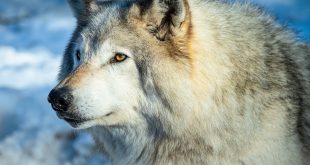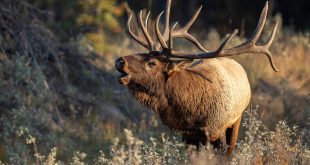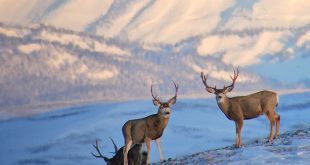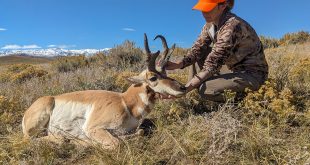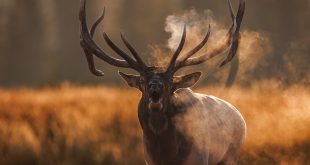
How to Handle Wildfires Ahead of Your Hunt
If you’ve been watching the fire maps this August, you know the reality: the West is burning again, and just as archery hunters are waxing strings and sharpening broadheads, Colorado’s Lee Fire is chewing up country in GMU 22. In Wyoming’s Bighorn Basin, smoke columns rise over multiple blazes near Worland and Thermopolis. Montana’s western half is seeing new fires start as hot, dry weather lingers, and in northern Nevada, the Cottonwood Peak Fire has already blackened more than 100,000 acres.
For western hunters, wildfire isn’t just a background headline that makes you feel for the communities they’re affecting. Fire can (and often does) shut down access, displace animals, and in some cases, cancel the hunt you’ve waited years to draw.
So what happens if the unit you planned your season around is suddenly behind fire lines? Let’s walk through how core Western states folks travel to handle tag returns, refunds, and deferrals. This is what you need to know before the smoke hits your hunt.
Colorado: Refunds or Points Back, Sometimes Last Minute
Colorado Parks & Wildlife usually requires tag returns 30 days before the opener to get either a refund or your preference points back. But when fires torch units late in the summer, CPW has shown flexibility. During past closures, they’ve allowed hunters to return tags up to the day before the season if access was completely cut off.
The Lee Fire in Area 22 and the Elk RBX Fire in Area 23 have torched over 150,000 acres recently, and the Meeker CPW office is currently closed, along with the major State Wildlife Areas nearby. There have been no major announcements of emergency refunds or returns ahead of the Sept. 2nd archery opener.
If only part of your unit is closed, though, CPW may not grant relief, because you’re expected to hunt what’s open. That is likely the case, even with the large fire in 22 taking out a big chunk of the eastern portion of the unit. Keep an eye on CPW’s emergency closure notices, because they’ll spell out whether your GMU qualifies.
Wyoming: Refund or Carry It Over to Next Year
My home state of Wyoming has one of the more hunter-friendly fire policies. If a wildfire makes your hunt area inaccessible, you can usually choose between a refund or a carryover license for the following year.
That’s right: in some cases you can keep your hard-to-draw tag and use it the next season. That is why folks in the draws may have noticed a massive decrease in tags issued for Elk Area 38 going into the 2025 tag draw following the big Elk Fire last fall. WGFD is accommodating for the rollover hunters. It’s a common practice, too, as they did the same thing in 2020 and 2021 with Area 78 mule deer hunters following the Mullen Fire.
Preference points are also restored with a refund. But not all tags qualify: general deer and elk licenses and reduced-price cow/calf tags aren’t eligible for deferral. The key is paperwork. You’ll need to return the unused tag and fill out WGFD’s affidavit before the deadline.
Montana: Tough Luck Unless You Act Early
Montana doesn’t have a wildfire safety net built into its system. Nonresidents can refund big-game combination licenses for partial refunds if they act early (50% this close to the season). But once you’re inside that window, a fire closure won’t get you your money or your points back.
Montana also makes it clear: preference and bonus points are forfeited when a license is refunded. No reinstatement, no carryover. That means if you drew a coveted elk permit and flames hit part of your district, you’re stuck deciding whether to tough it out in the open ground or walk away and reset your points to zero.
Though Montana has had their share of fires this year, with multiple in the thousands of acres burning right now, the state is largely available to hunting on General tags. Therefore, anyone whose favorite unit is on fire right now can look to neighboring units, or in some cases travel entirely across the state, to rehash their hunt plans. It’s not always folks’ preferences, but at least there are many unit options.
Nevada: Points Back, Not Cash Back
Nevada offers flexibility if you’re willing to give up the hunt. With its “PointGuard” style tag return program, you can turn in any tag up to one day before the season and NDOW will restore all your bonus points — plus give you the point you would’ve earned that year.
The catch? You don’t get your tag money back. But in the world of high-stakes Nevada tags, most hunters would rather protect their bonus points than burn them in a blackened unit.
Recently, the Cottonwood Peak fire broke 100,000 acres in and near the Independence Mountains, disrupting the ongoing archery mule deer hunting and archery elk season, not to mention any pronghorn hunters in the area. This could really alter the plans for over 300 tagholders, give or take if a couple of folks got their deer on opening weekend.
Utah: Emergency Options When Fires Get Big
Normally, Utah requires you to surrender a tag 30 days before the opener to get your points back. But the state has proven willing to step in when fires devastate a hunt area.
In 2025, when the Monroe Mountain blaze closed much of that unit earlier this month, the Wildlife Board allowed hunters to either:
- Get their points back plus a refund, or
- Defer their tag to the next season.
That’s rare flexibility. For most hunts, if you wait inside the 30-day window, you lose your points. But in a big fire year, keep an eye out for emergency board decisions. While the Monroe Fire is showing over 80% containment, it usually takes a while for forest closures to be lifted.
Arizona: Buy PointGuard or Roll the Dice
Arizona has been in the headlines for its massive fires around the Grand Canyon this year. The Dragon Bravo fire and the White Sage fire have burned over 200,000 acres of prime mule deer habitat this summer. However, this state doesn’t refund tags for fire closures, period. The only safety net is PointGuard, which you must purchase when you apply. With PointGuard, you can surrender a tag up to the day before the season, keep all your bonus points, and even earn that year’s point as if you hadn’t drawn.
Without PointGuard? You’re hunting, fire or not.
For those tagholders on the Kaibab this archery season who have to hunt, you will be working around closures and spending a lot of time in parts of the unit with much lower deer densities. While mule deer are known to return to the recently blackened burns relatively quickly, hunters will likely be concentrated in the areas they can access at this time.
Idaho: Exchanges, Rain Checks, or Refunds (Sometimes)
Idaho handles fire impacts on a case-by-case basis. The Gem State is usually in the crosshairs of wildfire behavior, but at the time of this writing, no massive wildfires have shut entire units down. That said, a few blazes are burning in the Panhandle to keep an eye on. If your unit goes up in smoke, you may be able to:
- Exchange your general tag for a different zone before the season
- Request a refund
- In rare full-closure cases, receive a “rain check” so you receive the same tag again next year.
The catch: you can’t have hunted on the tag, and nonresident quotas limit exchanges. Each fire year looks different, so pay attention to IDFG announcements.
New Mexico: Director’s Discretion
New Mexico has been known to go up in smoke in previous years; however, coming out of the 2025 summer, it seems as though timely monsoons have curbed any monstrosities this summer. The state doesn’t run on points, and its wildfire relief hinges on the Director’s authority. If a natural disaster truly prevents a hunt, the Department can authorize a refund or transfer. In past mega-fires, they’ve monitored closures and made calls as hunts approached.
It’s not guaranteed, and it’s not a deferral program you can count on — but if your unit is shut down by fire, reach out right away.
The Bottom Line
Wildfire season is now hunting season. That means every hunter heading West needs a backup plan for where to hunt if closures hit and a clear understanding of their state’s tag return policies.
Some states are generous (Wyoming, Nevada, Utah in emergencies). Others are far less so (Montana, Arizona without PointGuard). Don’t assume you’ll get another chance if fire shuts you out. As you lace up boots and nock arrows this fall, keep an eye on the fire reports. Hunt plans are written in pencil, and wildfire season is the eraser in many cases.
 Eastmans' Official Blog | Mule Deer, Antelope, Elk Hunting and Bowhunting Magazine | Eastmans' Hunting Journals
Eastmans' Official Blog | Mule Deer, Antelope, Elk Hunting and Bowhunting Magazine | Eastmans' Hunting Journals
